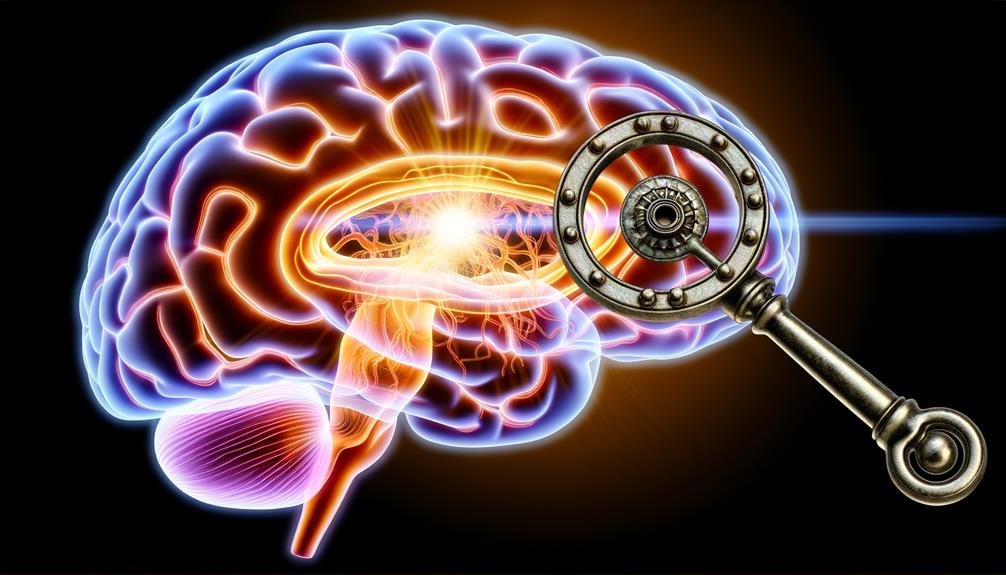You might not be aware that cognitive research, a branch of psychology, uses a variety of methods from neuroimaging to language analysis to explore how our mind processes information. Understanding cognitive research is like unlocking the secrets of the mind, revealing how we learn, remember, perceive, and solve problems.
But what’s the real-world impact of these discoveries? Join the discussion, and you’ll find out.
The origins of cognitive research
To fully grasp cognitive research, you’ve got to start at its roots, delving into its rich and complex origins. It’s a journey that takes you back to the mid-20th century, when the cognitive revolution was set in motion. This was a seismic shift in psychology, a departure from behaviorism, which held sway at the time. It wasn’t that behaviorism was wrong, but it just didn’t tell the whole story. You see, behaviorism focused on observable actions, neglecting the internal processes of the mind.
Cognitive research emerged as a response to this gap. Its pioneers started to probe deeper, looking beyond mere actions to explore how the mind works. They were intrigued by human cognition–how we acquire, process, and use information.
This new approach was influenced by advancements in technology and fields like linguistics, neuroscience, and computer science. The advent of computers, in particular, offered a fresh metaphor for understanding the mind. Just as a computer processes data, so, they suggested, does the human mind process information.
It’s a fascinating field, isn’t it? But remember, this is just the beginning. We’re only scratching the surface of cognitive research’s origins.
Key concepts in cognitive science
Let’s dive into the heart of cognitive science, unpacking its key concepts that illuminate how our minds work. You’ve likely heard of memory, attention, perception, language, and decision making. These aren’t just everyday phenomena, they’re the pillars of cognitive science.
Memory isn’t a simple storage bin, it’s a complex process of encoding, storing, and retrieving information. Attention, on the other hand, is the selective focus of our mental resources. It’s the spotlight that illuminates what we perceive and remember.
Speaking of perception, it’s the process that helps us make sense of our environment. It’s not just about seeing or hearing, it’s about interpreting. Language, meanwhile, isn’t just about words and grammar, it’s our key to communicating ideas and emotions.
Finally, decision making isn’t just about picking a choice, it’s a complex process involving weighing options, evaluating risks, and predicting outcomes.
Understanding these concepts is like holding a roadmap to your mind. They don’t just explain how you think, remember, perceive, communicate, and decide, they also offer insights into why you do what you do and think the way you think. Now that’s truly mind-boggling!
Research methods in cognition
Diving into cognitive research methods, you’ll discover a toolbox of techniques scientists use to unravel the mysteries of the mind. You’ll encounter experimental methods, where researchers manipulate variables to observe effects on cognition. This might include lab experiments or field experiments, each with its pros and cons.
You’ll also come across observational methods, where you’re not changing anything but simply watching and recording cognitive processes as they naturally occur. Here, you’ll find methods like naturalistic observation, case studies, or longitudinal studies.
Then there’s correlational research, which explores the relationship between different cognitive variables, without necessarily implying cause and effect. For example, researchers might examine the correlation between memory recall and age.
Lastly, you’ll delve into neuroimaging techniques, like fMRI or PET scans, which allow researchers to literally see what’s happening in the brain during different cognitive processes. It’s a fascinating, if complex, field.
Noteworthy findings in cognitive studies
Having explored the various methods researchers use in cognitive studies, now let’s turn our attention to some of the most significant findings that have emerged from this field. You’ll find that cognitive research has revealed fascinating insights into how our brains work.
One of the most groundbreaking discoveries is the brain’s plasticity. It’s not hardwired as previously thought; it can change and adapt throughout our lives. This means you can learn and develop new skills no matter your age.
Another important finding is the role of emotions in cognition. Emotions aren’t just feelings; they also influence how you think and make decisions. They can even affect your memory and learning.
Cognitive bias is another critical finding. This suggests that your thinking isn’t always rational or objective. You’re influenced by a variety of biases that can distort your perception and decision-making.
Lastly, scientists have discovered the significance of sleep in cognitive function. A good night’s sleep isn’t just refreshing; it’s crucial for memory consolidation and learning. So, don’t underestimate the power of a solid snooze.
These findings aren’t just interesting; they’re instrumental in understanding the mind’s workings and can significantly impact various aspects of life, from education to mental health.
Cognitive research: Future implications
With the rapid advancements in cognitive research, you’re likely to witness significant changes in areas like education, mental health, and even artificial intelligence.
Imagine classrooms that customize learning based on a student’s cognitive abilities, helping them grasp concepts more effectively. As educators become more aware of how the mind works, they’ll be able to create more impactful and inclusive learning environments.
In the mental health realm, cognitive research could lead to breakthroughs in treating disorders like depression, anxiety, and PTSD. You may see therapies tailored to an individual’s cognitive processes, offering more personalized and effective treatments.
In the world of artificial intelligence, cognitive research is pushing the boundaries. Future AI could mimic human cognitive processes, leading to more sophisticated and intuitive systems. You’re likely to see AI that can learn, reason and even understand emotions.
In a nutshell, the future of cognitive research holds exciting possibilities. You’re at the brink of an era where understanding the human mind will revolutionize various fields, from education to mental health to AI. It’s a thrilling time to be alive, isn’t it?
Conclusion
So, you’ve dived into the complex world of cognitive research. You’ve journeyed from its roots, explored key concepts, understood research methods, and acknowledged standout findings. This exciting field is ever-evolving, promising to unlock more secrets of the brain. So, keep your eyes peeled for what’s next.
Remember, understanding our mind isn’t just scientific curiosity, it’s the key to improving decision-making, problem-solving, and overall mental health.
Here’s to the power of cognition!










